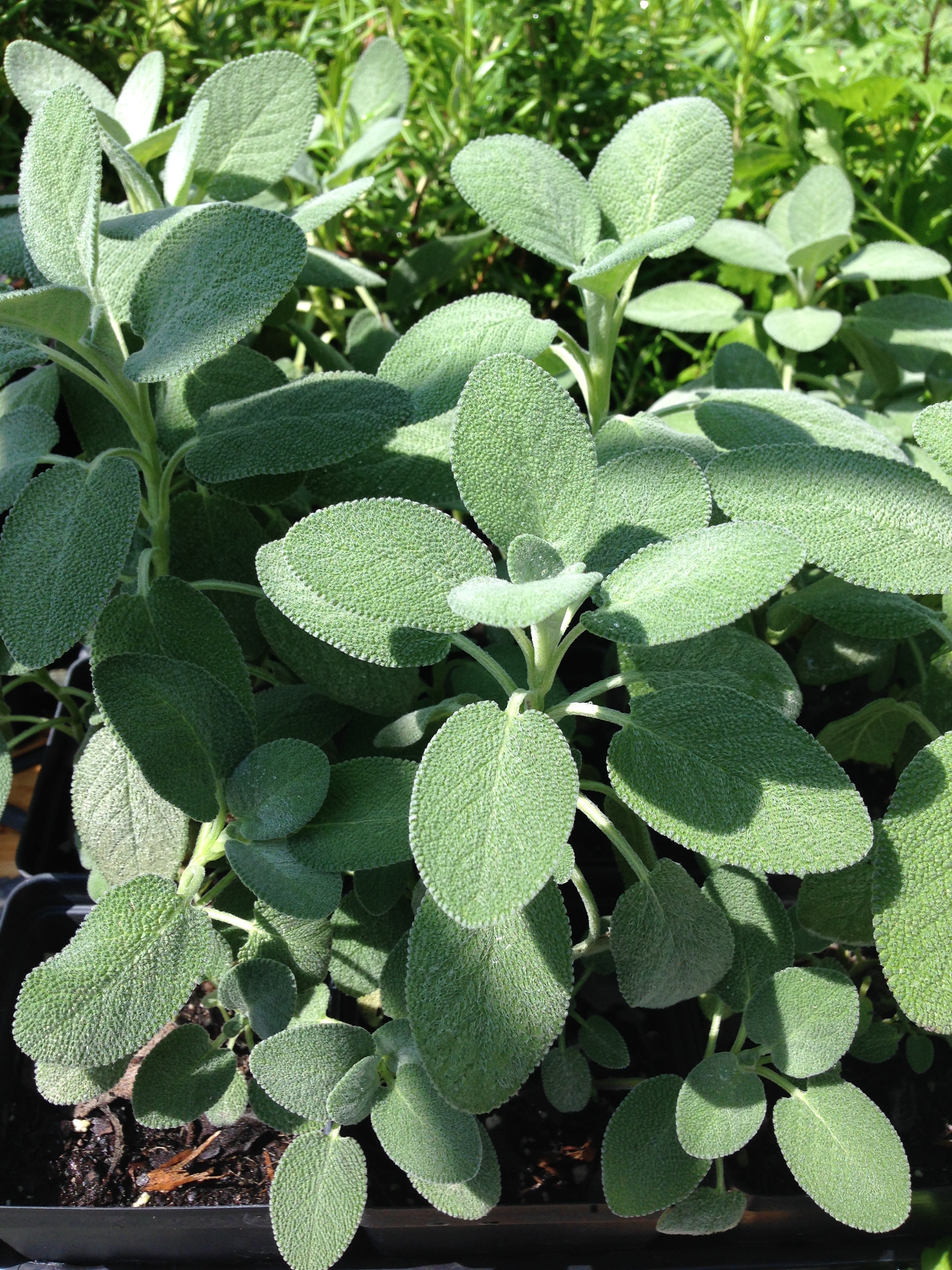Sage (Berggarten)
So what is it?
Sage is a perennial herb from the Mediterranean, however Berggarten is a German cultivar denoted by its silver, oval shaped foliage. Sage can reach a height anywhere between 1-3 ft with a similar range in spread. Its infrequent blooming means that sage will continue to produce usable leaves for longer periods.
Growing conditions?
Much like rosemary and oregano, sage is relatively simple to grow. Sage performs best in zones 5-8 and can easily be grown indoors, outdoors or in containers. Wherever you choose to plant sage, ensure it receives direct sunlight for at least 6-8 hours. Dry banks or areas with rocky soil are a common habitat for sage, so well-drained soil is a must! Do not worry about deer, droughts or frosts, because sage can handle it all. Just be sure not to do any late fall pruning, which can leave sage more susceptible to the cold.
What are its uses?
Sage is amazing for cooking and is one of the most widely used culinary herbs. Sage enhances any sauce, marinade, soup or gravy. Its warm, earthy flavor pairs great with most meats. Use sage to flavor roasted chicken, pork sausage, lamb and turkey. Additionally, combine sage with other vegetables for great vegetarian/vegan dishes, like butternut squash linguine, sage and garlic pecan roasted vegetables or pumpkin biscuits! Furthermore, sage adds a little savory to any sweet dessert containing lemon, fig, apple or nuts.
Not much of a cook?
Not a fan of spending more than a few minutes in the kitchen? Then you’re in luck, because sage has many non-culinary uses! Sage can be used as a lovely ground cover with flowers that will attract plenty of bees and butterflies. Are you sensing some bad energy in your home? Then bundle and dry sage for smudging. Additionally, sage has an important role in herbal remedies, treating strains, swelling, ulcers, sore throats/coughs, eczema and symptoms of menopause. Remember to consult a doctor or professional herbalist before use.
So, does sage sound like a great addition to your garden? If so, stop by our tent to get a closer look and check out our other awesome herbs! You can find us at the Chapel Hill Farmer’s Market, Saturdays from 8 a.m.–12 p.m. at University Place. Feel free to contact us with any questions you may have through our contact page!

